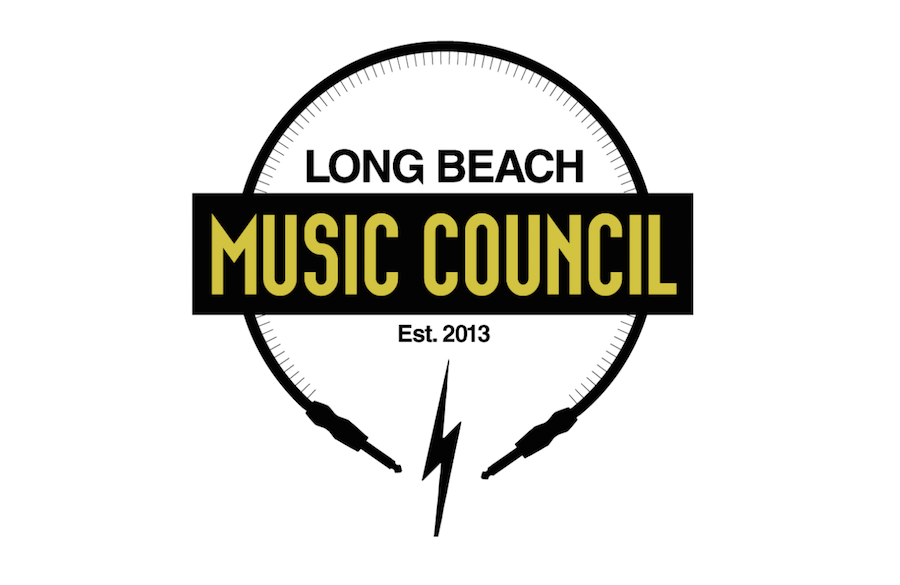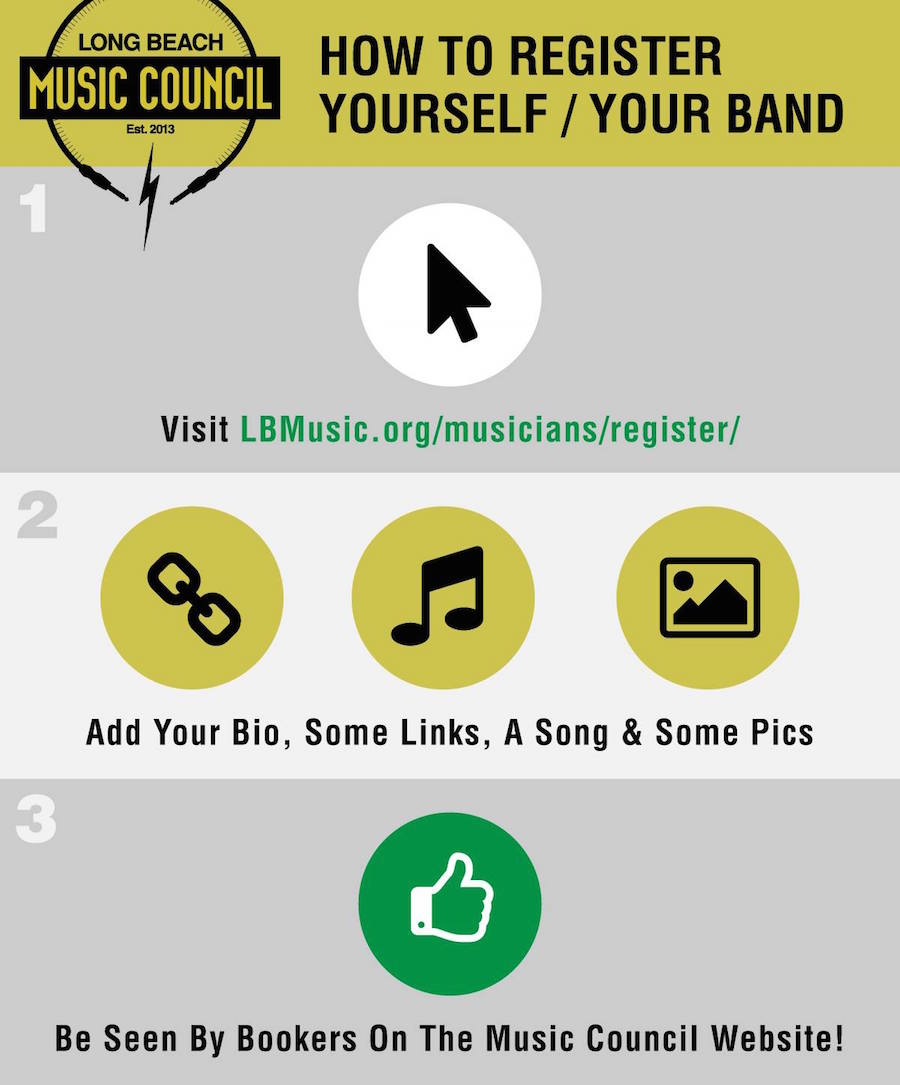
Whether it’s your first gig or your hundredth, getting booked to play your music to a crowd is never as easy as showing with your gear to a place that has a PA. It takes negotiation, marketing and notoriety, the last of which the Long Beach Music Council (LBMC) hopes to address with its newly launched musician registry.
The beta version of its online rolodex of Long Beach musicians launched late last week, with the aim of gathering all the musicians in the city in one central spot to make them more accessible to venues and event planners, while at the same time making their venues more accessible to the artists. LBMC President and co-founder Shea Newkirk said the project was born of need and as a way to give talented, but potentially unknown musicians, an opportunity to have their music heard citywide.
“The aim of this is really to have a place where people who do events in Long Beach—city people, event organizers, things of that nature—can come and find local bands to book instead of booking bands outside of Long Beach or booking the same bands over and over again, which you tend to see a lot of,” Newkirk said.
The council has made many strides toward helping musicians in Long Beach during its three years of existence. In addition to the new musician registry, it has helped create a live music guide to the city that serves as a musical map of Long Beach, complete with breakdown of venues and the general vibes and genre you’d expect to find there. The organization has also created a musician’s guide which lists venue information, suggestions for trying to get booked in the city and how to successfully market your gig once you’ve landed it.
 Newkirk, who has long been the front man of local Celtic bar staple Dublin Public, knows the struggle of being a musician in town looking for regular paid gigs. And as a person who helps orchestrate the Long Beach Folk Revival and other music events in the city, he also knows the plight of the promoter looking for new blood, something he said is tall task despite the proliferation of social media.
Newkirk, who has long been the front man of local Celtic bar staple Dublin Public, knows the struggle of being a musician in town looking for regular paid gigs. And as a person who helps orchestrate the Long Beach Folk Revival and other music events in the city, he also knows the plight of the promoter looking for new blood, something he said is tall task despite the proliferation of social media.
Creating this registry could give clubs who have last minute cancellations a resource to tap if they’re in need for a last-minute country act, or possibly just the right up-and-coming indie band it needs to fill out its bill. The plan is to work out any possible kinks during the beta process by allowing those that will be using it—the artists—to make suggestions to the council on how it can be improved.
The site allows for musicians to upload a virtual biography of their acts with photos, bio, music samples and links to videos. But it also allows for more practical information to be listed, like availability, name of booking contact and how to get a hold of the artists. The service is free to use and available for all Long Beach artists to use.
Although Newkirk says that term lends itself to a measure of ambiguity, getting people in the registry, whether the whole band lives in town or just one member, could help diversify the musical offerings in Long Beach. Once the database is filled out, the council will start promoting it to event organizers and venues, which it hopes will embrace the tool and use it to book more local acts.
“There’s so many great local musicians and lot of them feel like it’s very hard to have access to a lot of different events throughout the city,” Newkirk said. “Something we were continually hearing from musicians was ‘How do we get booked for this event? What about this festival? Why are these guys always playing these city events?’ It’s really a process mired in a lot of ambiguity. There’s no real place you can go.”

